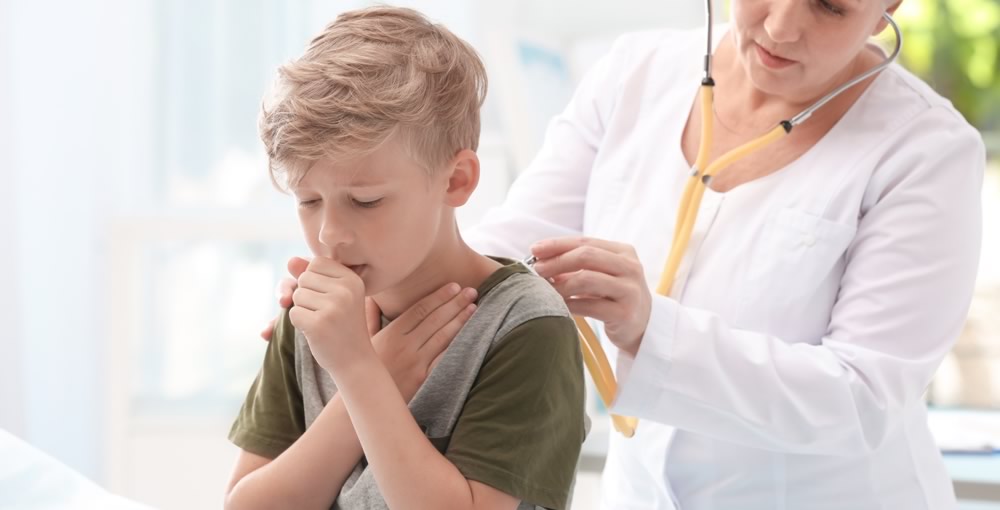Respiratory Syncytial Virus (RSV): Top 5 Things Parents Need to Know
September 30, 2021

In today’s current climate, if a child develops a cough or fever, many parents assume COVID-19 is the culprit. But there is another virus surging this season that parents should be aware of— respiratory syncytial virus, or RSV.
In June, the CDC issued a health advisory warning doctors of an increase in RSV cases across the southern United States. The organization recommended broader testing for RSV among people with respiratory illness who test negative for COVID-19.
Most people with mild to moderate RSV infection are diagnosed with an Upper Respiratory Infection (URI) or common cold.
While Texas MedClinic does not provide testing for RSV, tests are available and typically used when illness is severe enough to warrant a trip to the ER or hospitalization.
The most used types of RSV tests are:
- Real-time reverse transcriptase-polymerase chain reaction (rRT-PCR)
- Antigen testing
Both rRT-PCR and antigen tests are effective for diagnosing RSV in infants and young children. The rRT-PCR is more effective in testing older children and adults.
- What is RSV?
RSV is an RNA virus and the most common cause of bronchiolitis (lung inflammation) and pneumonia (lung infection) in children under the age of one in the U.S. Those most at risk of developing severe illness from an RSV infection are the elderly, young children, and infants.RSV infections typically occur in the fall and winter months along with flu season. Last year, RSV circulation in the country was uncharacteristically light, likely due to the public health measures implemented to reduce the spread of COVID-19. Because infants and young children did not receive the typical levels of exposure during the 2020 – 2021 season, they may now be at greater risk of developing severe RSV-associated illness, so it is important for parents to the symptoms of RSV. - What are the symptoms of RSV?
Symptoms of RSV infections usually include:- Loss of appetite
- Runny nose
- Coughing
- Sneezing
- Wheezing or shortness of breath
- Fever
“RSV symptoms tend to present 4 – 6 days after exposure,” says Dr. David Gude, Chief Operations Officer at Texas MedClinic. “These symptoms usually appear in stages rather than all at once.”
Most children who contract RSV will have done so by their second birthday. - How is RSV transmitted?
RSV is typically spread through respiratory droplets. Infection occurs when:- You come in direct contact with the virus (for example, kissing someone who is infected)
- An infected person coughs or sneezes near you
- Droplets from the cough or sneeze of an infected person land in your eyes, nose, or mouth
- You touch a surface—like a doorknob or countertop—that has RSV virus on it
- How is RSV treated?
Most RSV infections go away on their own within 7 – 14 days. While there is currently no treatment for RSV, there are steps you can take to relieve symptoms.- Manage fever and illness-related aches by taking ibuprofen or acetaminophen (always follow dosing instructions on the bottle).
- Drink plenty of fluids to prevent dehydration.
While most RSV infections cause only mild to moderate illness, it is possible to develop more serious RSV-related illnesses like bronchiolitis and pneumonia.
- How can I avoid catching RSV?
Keep yourself and your family safe by following these simple steps to prevent the spread of RSV to those most susceptible (the very young and very old):- Cover all coughs and sneezes with a tissue. If you don’t have a tissue, cough or sneeze into your elbow instead of your hands.
- Wash your hands frequently, using soap and water, and scrub for at least 20 seconds before rinsing.
- Avoid close contact with others who are symptomatic—no hugging, kissing, shaking hands, or sharing cups/utensils.
- Clean frequently touched surfaces like countertops, doorknobs, cell phones, and tv remotes.
Children under one year of age are most likely to contract RSV. To help children stay well, parents or caregivers should:
- Avoid close contact with anyone who is sick.
- Wash hands frequently using soap and water and scrubbing for 20 seconds.
- Avoid touching your face when hands are unwashed
- Limit the time children spend in child-care centers or other contagious settings especially in the fall, winter, and spring.
If you are sick with cold-like symptoms, avoid contact with those at higher risk of developing severe RSV disease including the elderly, premature infants, and children with weakened immune systems.




